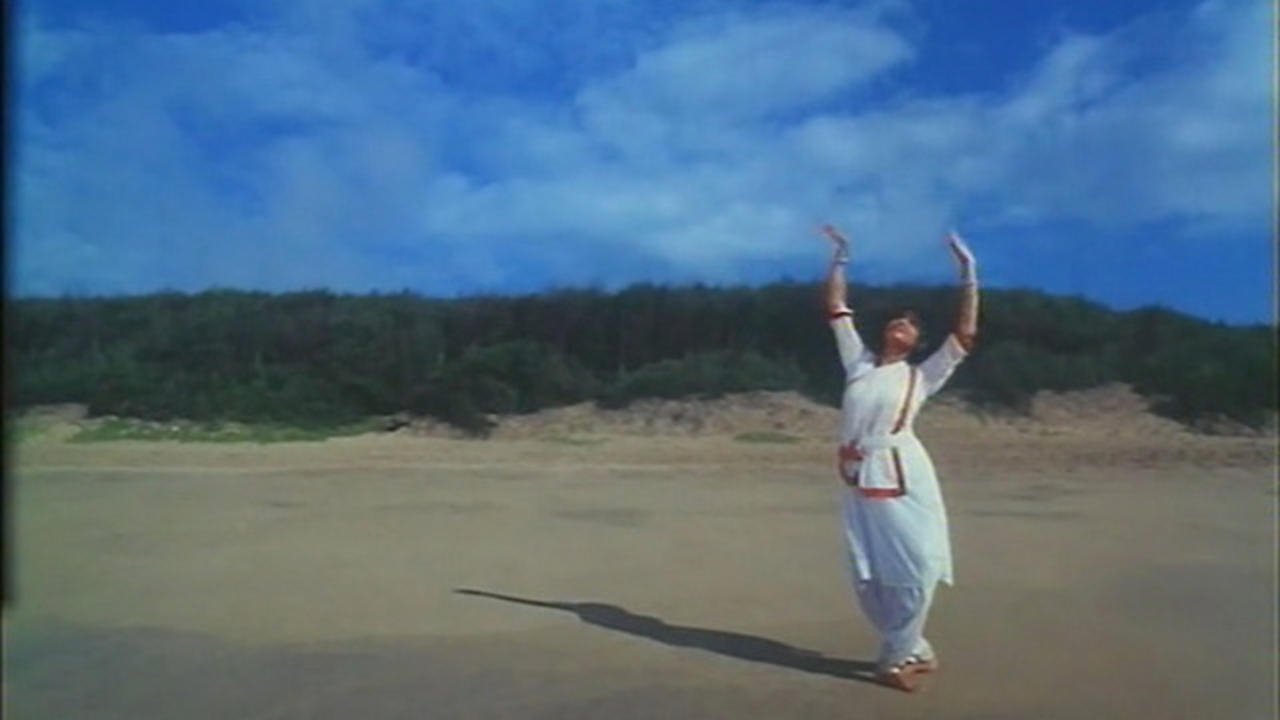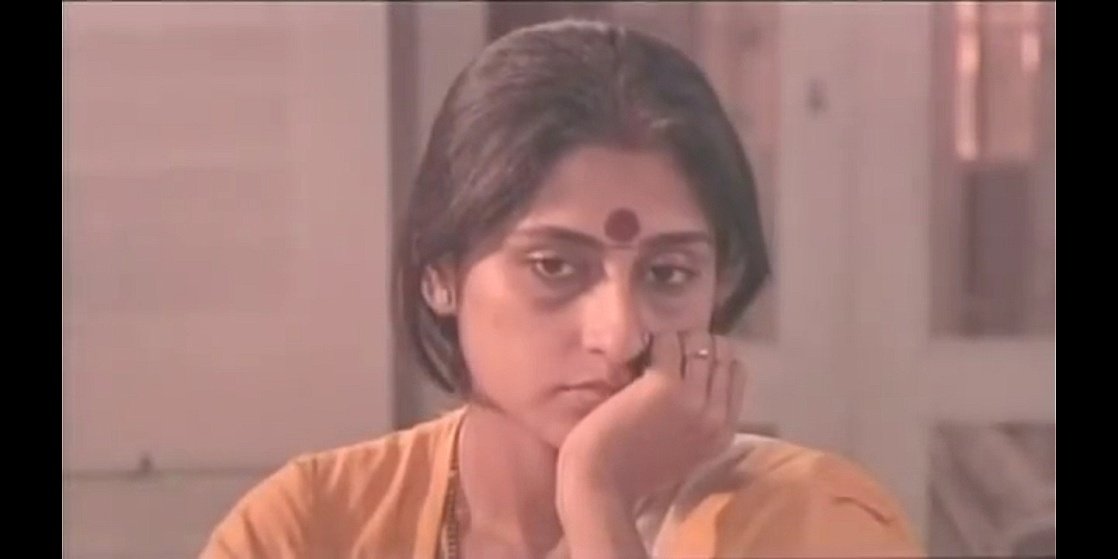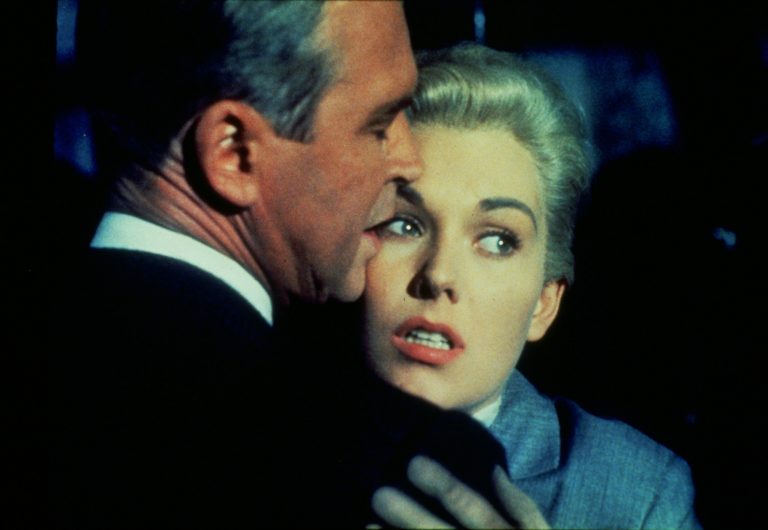Aparna Sen sets up her 1995 film Yugant (What The Sea Said) with the most ubiquitous premise. An estranged couple meets several months after separation, on pre-determined terms in a seaside town where they had spent their honeymoon seventeen years prior. Sen invests this premise that can instantly lend itself to thrilling emotionally charged moments with pointed, often-cynical ethical inquiries.
How is the boundary line that confines artistic expression decided? Which kind of ecosystem can lead to the building of stakeholders with vested interests that take up the mantel of dictating what is permissible in artistic representation? How is dissent dispensed with and domesticated into commercialized, sophisticated, and all-too-neat cultural productions? Who blunts the rough edges and irons out the thorny bits of rigorous questioning? To reach a veritable modicum of interrogating the very structures within which one operates, what are the compromises one has to make, compulsions one bound by? Finally, how truly complete and untrammeled is the notion of so-called artistic independence?
Related to Yugant – How Neeraj Ghaywan’s ‘Masaan’ amplifies its themes through Visual Storytelling
Sen treads only some of these questions but allows a burgeoning of a series of unnerving questions in the viewer’s minds. She magnifies her gaze to incorporate prescient reflections on the contemporary Anthropocene, her investigation originating as a poignant response to the globalization and oil-driven imperialism that fired up in the 1990s. She achieves this with the aid of her two principal characters, who are perched restlessly and unevenly on the cusp of individual growth and transformation, imbued with the courage to embark on certain choices and defiance of circumstance.
The severed marriage between Deepak (Anjan Dutt) and Anasuya (Roopa Ganguly) is designed as a fine entry point to understanding a profoundly, irreparably severed relationship between man and environment, reeling from the fallouts of intense anthropocentric agendas. In many ways, the film excavates the various dimensions of acute anthropocentric unmindfulness and self-absorption. Sen occasionally positions Deepak as an entitled patriarch, taking umbrage and stinging at the mildest of criticism, full of callous disregard for and impeding his wife’s relentless ambition, using her pregnancy as his defense.

Simultaneously, another relatively latent but seething narrative unspools. Assuaging one’s bloodied conscience by attempting an inadvertent appropriation of voices and identities far removed from one’s social location is a subject the film nudges at consistently, albeit in a manner that resembles the likes of patient, humble self-analysis.
Anasuya is aggrieved when she learns of the oil spills due to the Gulf War, triggering the devastation of marine life, footage of which intercuts the scenes during which the characters articulate their concerns. She asserts her artistic right to refashion her anxieties on the subject into her dance drama production. Amused, Deepak rebuts, saying that the suffocation of mammals in the oil-slicked ocean is nothing but a mere creative composition to her. He insinuates her for utilizing each experience and encounter she has had solely for artistic purposes and endeavors.
Also, Read – The Enduring Relevance of Mrinal Sen
The viewer is confronted with the ways we perceive and respond to tragedies and disasters. Do they at all gain any deeper, intimate association with us than a resonant opportunity to play around with aesthetic experiments? Does that not constitute an authentic and genuine manifestation of our care and empathy or is it something intentionally dissociated from the private self, safely removed from our immediate impulses and sanitized echo chambers?
The film does not spare Deepak any pretense of moral high ground either. The poems, prose pieces, and the novel he seeks to complete are ostensibly presented as grim narratives centered on the tribulations of dispossessed tribals, impoverished farmhands, the agony of laborers and their wives who are perennially made to endure the hardest of times. When Anasuya points this out, the reiteration of such a thematic thread in his work pricks his guard.
Deepak used to accompany Anasuya’s brother, an activist, on the latter’s travels through regions undergoing massive corporate redevelopment projects, driving the farm hands off the very land they relied on for sustenance, making way for riverine dams and posh five-star hotels. In a manner that is more suggested than stated, Deepak imagines himself as a considerable authority on documenting their reality owing to his (infrequent) proximity. Sen comments on both the literal and metaphorical usurpation of physical existence and identities of lesser-privileged echelons of society by those with social, economic, and cultural capital. It is only much later that he demonstrates a guileless curiosity in their lives, through conversations with the fishing folk couple in the seaside town.
The viewer is constantly told about the rampant, heedless felling of forest cover, the consequent rising salinization, and the loss of basic livelihood and shelter for the farmers and laborers. Sen constructs an intricate, intelligently balanced screenplay where the meeting point on deprivation of fundamental rights of both humans and animals is controlled in a tone that eschews any sort of grandstanding reproach. The tone comes close to a sighing crestfallen submission to the inevitable circumstance, punctuated by streaks of its characters negotiating and putting forth counter-discourse.
The film’s recitation of indignities perpetrated on man and all that nature encompasses and includes under its wing and the cessation of their space is woven into the juxtaposition between the contrasting internal journeys of Anasuya and Deepak. As memories of their honeymoon gently come to the viewer in vignettes, the younger Anasuya’s much deeper connection to natural bloom is conveyed as she herself mentions how the sea talks to her often. Her dance at the beach is symbolic of her innate immersion into the sea, a pure willingness to absorb and be absorbed by the elements, representative of her ability to subsume herself splendidly into the environment.
With age, her natural liveliness withers off, replaced by a hard-crusted brittle soul. The older Anasuya has to persistently jostle and grapple with hostile market forces and financiers who may snip off provocative aspects of her dance production on the argument that they are “too close to reality” and hence must be expunged. Although she attempts to bridge the gap between herself and the ecology through her art, an alienation at a more rooted level has already developed.
Related to Yugant – Akaler Sandhane [1980] Review: A famine from the past and its echoes into the future
When Deepak asks her whether she can still hear the sea talking, she dismisses him, calling it an immature, foolish fancy. On the other hand, Deepak, a copywriter at an ad agency, slowly abjures all efforts at material promotion and embraces alternative rhythms and structures of living, dislodging himself from mundane realities. His ultimate resolute grip of finality over his ambition collides with a retreat from humdrum beats of life itself. While Anasuya tries to match the demands of everyday life with her desires, there is friction but she works at it, doggedly. Deepak lets go of any such balancing act which he has been doing all his life.
Throughout Yugant, there is a running commentary about the frayed age of the earth. The recurring impression it gives is that of a planet on the brink of collapse, the spirit of apocalypse framed in the very epigraph, verses from the Mahabharata indicating that the planet has reached its prime, henceforth the end of time is near. The characters gradually shed their incipient idealism and gain a pragmatic tenor, especially Anasuya, who realizes what it takes to carve her niche and acquire patronage for her art.
Deepak forsakes it all to access an equipoise, his key decision foreshadowed by his frequent existential ruminations. The film adopts the garb of a tale about a couple who have drifted apart, past any possibility of reconciliation, but the audacity lies in how Sen expands on the philosophy and worldview of the characters, locating them in a context of fast-emerging global capitalism, multinational corporations altering ecosystems beyond retrieval and rhetoric of typical man-made violence that transcends national borders. Yugant is a formidable enterprise of ideas and questions, lit by Aparna Sen’s characteristic spirit of empathetic discernment and finely tuned emotional intelligence.









